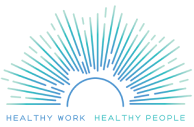CAL-OSHA is the latest in a number of states that have passed an Emergency Temporary Standard (ETS) to specifically protect workers from COVID-19. While federal OSHA has resisted passing any specific worker safety regulations regarding COVID; Virginia, Oregon, Michigan and now California are the only states with an ETS. Fourteen states have adopted some comprehensive worker health and safety requirements, either through executive order or through passing an emergency temporary standard. These regulations require employers to:
- Require at least 6 feet of physical distance
- Require workers and customers to wear face masks
- Provide PPE (including face masks)
- Provide workers access to regular hand washing, hand sanitizers
- Improve ventilation systems
- Require deep cleaning after a COVID case has been found
- Notify workers when a case has been found
These basic public health measures were estimated in a scientific article in the journal Nature, to have prevented 530 million COVID cases globally, at a time when there were 8.8 million cases. The number is much higher today.
Unfortunately, there have been multiple cases of employers not protecting their workers, highlighted by the media and by OSHA investigations. Meatpacking factories failed to prevent widespread outbreaks among workers, even discouraging workers who were exposed from quarantining. At Tyson Foods managers were found to be betting on how many workers were infected! Hundreds of businesses were found to have violated COVID safety rules in Massachusetts after a recent investigation of state data by Boston journalists. Similar safety violations have been found across multiple industries, including in grocery, retail, gyms, restaurants, and manufacturing.
Given the current unprecedented surge in cases throughout the country currently, enforcement of worker health and safety is essential to the health of workers and to stop the spread of coronavirus. During the Trump administration OSHA inspectors have fallen to well below 1,000. The lack of inspectors means inadequate responses to worker complaints and investigations of violations, which is especially dangerous right now during the pandemic. In November, in response to inadequate enforcement, Los Angeles County approved a program for workers to form public health councils to report violations of public health orders by employers. The board also passed an anti-retaliation ordinance to protect low-wage workers from retaliation for reporting health & safety violations.
Why is enforcement of health & safety rules a vital part of “healthy work”? Worker involvement in ensuring health & safety is an important part of the psychosocial work environment. When workers have a voice – especially to ensure health & safety rules during a global pandemic – they have greater “job control” which helps to reduce the stress that comes from uncertainty and gives workers the power to protect themselves and others, slowing the spread of the virus for workers and the community.






